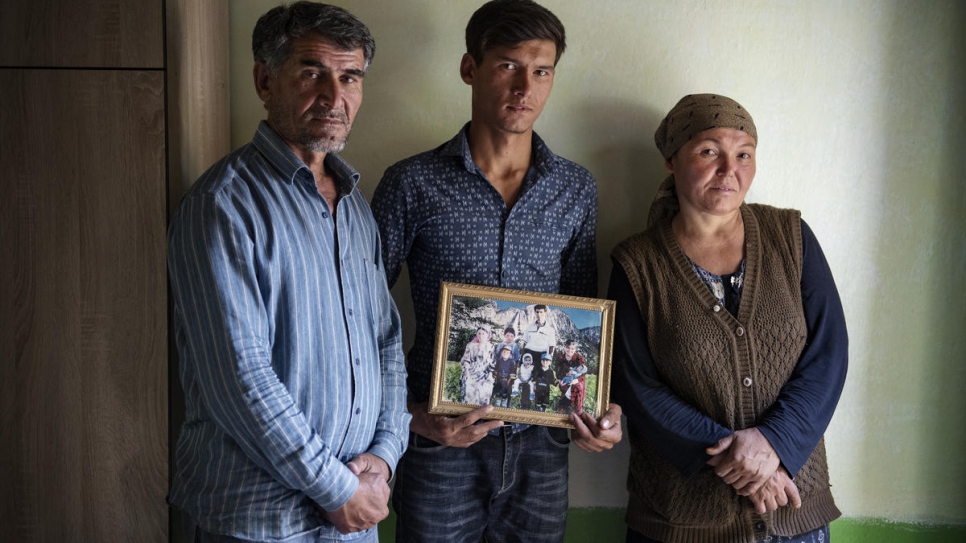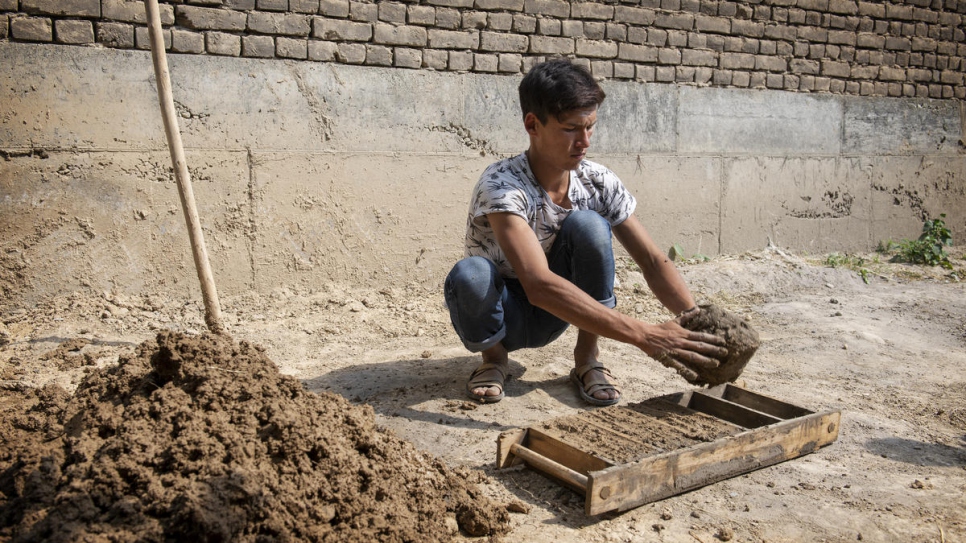Once a dream, citizenship puts medical career within reach
University seemed like an impossible dream for 21-year-old Nazir, who was born stateless in Kyrgyzstan. Now he can finally study medicine.
Nazir, 21, is finally able to fulfil his dream of becoming a doctor.
© UNHCR/Chris de Bode
In the shadow of her small, square clay brick house, Sanabar Khatamova hums softly as she thumbs through the contents of a folder.
Inside are some of her son’s most precious documents – school diplomas and a photograph of his graduation.
“Look at him,” the 46-year-old mother says, proudly. “From his childhood I knew that he was special. He was so keen to get an education.”
It has taken over three months to prove Nazir’s nationality with this folder. Now, the 21-year-old is preparing to receive a new, even more precious document – one that will finally help him to fulfil his dream of becoming a doctor.
"He was so keen to get an education.”
Nazir was born at home, among Kyrgyzstan’s Lyuli community, a once nomadic group that exists on the fringes of society.
Like many mothers here, Sanabar had no idea she needed to register her son.
“I just didn’t know that I had to call a doctor,” explains the mother of four. “None of my neighbours did either. If I had, of course I would have done it.”
Nazir’s parents encouraged him to attend the small community school, where he excelled in the classroom and on the athletics track.
Sports teacher Pakhridin Maganov still remembers his brilliant student.
“Of course I remember Nazir!” exclaims the 57-year-old from his office, its walls adorned in medals and faded photographs of former champions. “He was my best student. He had a lot of ambition and very good parents.”
With the help of his teacher, Nazir learned how to administer first aid during school sports, applying bandages and dressings.
But any hopes of a medical career were shattered when he reached the age of 16. Without a birth certificate or identity card, university was out of the question.
“I wanted my children to get an education."
For five years, his dream faded, a wistful fantasy of what might have been.
“I liked medicine very much, but without documents I didn’t exist,” says Nazir. “I could not find a proper job. I could not vote. I could not go to university. I could not even meet my grandfather, who lives in Uzbekistan.”
Without documents of her own, Sanabar watched helplessly as her son made ends meet by building clay brick houses.
“I did not study myself and I wanted my children to get an education,” she says, sadly. “Documents became the most important thing.”
Then, earlier this year, help arrived in the form of an organization known as Ferghana Valley Lawyers Without Borders (FVLWB).
With the help of UNHCR, the UN Refugee Agency, FVLWB has worked to tackle statelessness in Kyrgyzstan since 2007. From 2014, it began reaching out to isolated communities like Nazir’s with mobile legal clinics and free advice. Recently it helped the Central Asian state to achieve a historic first – ending statelessness.
Statelessness affects millions of people globally, denying them access to basic rights such as healthcare, education and employment.
The lawyers helped Sanabar to submit the necessary paperwork, as well as prove her nationality and that of her children in court.
At last, all four of them, including Nazir, are on course to receive citizenship.
“We just wouldn’t have been able to do this without the lawyers, because of money,” says Sanabar. “When a person has no documents they cannot feel like a real member of society. Now my children are very happy and so am I.”
Nazir can barely believe his dream is coming true.
“The most important thing for me is university,” he says, grinning. “When I get a passport and I step onto the campus, I will be on cloud nine.”
If you want to know more about how you can make a difference to the lives of people like Nazir, join our #IBelong Campaign to End Statelessness.






